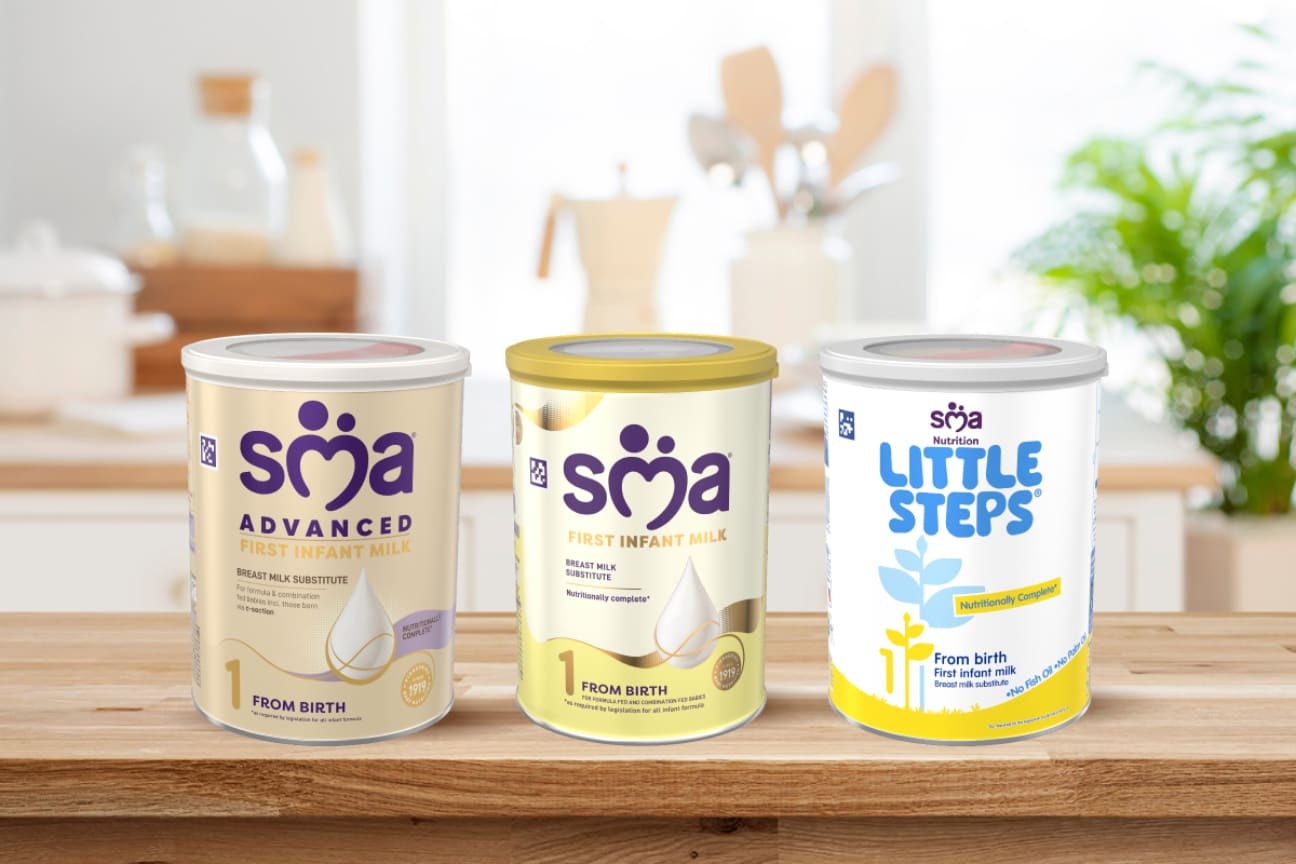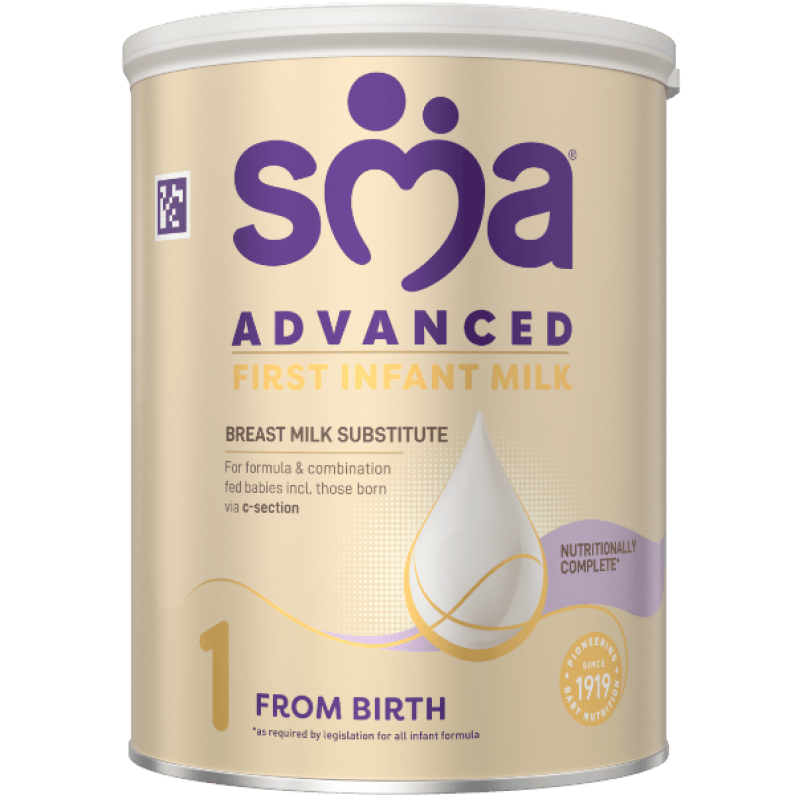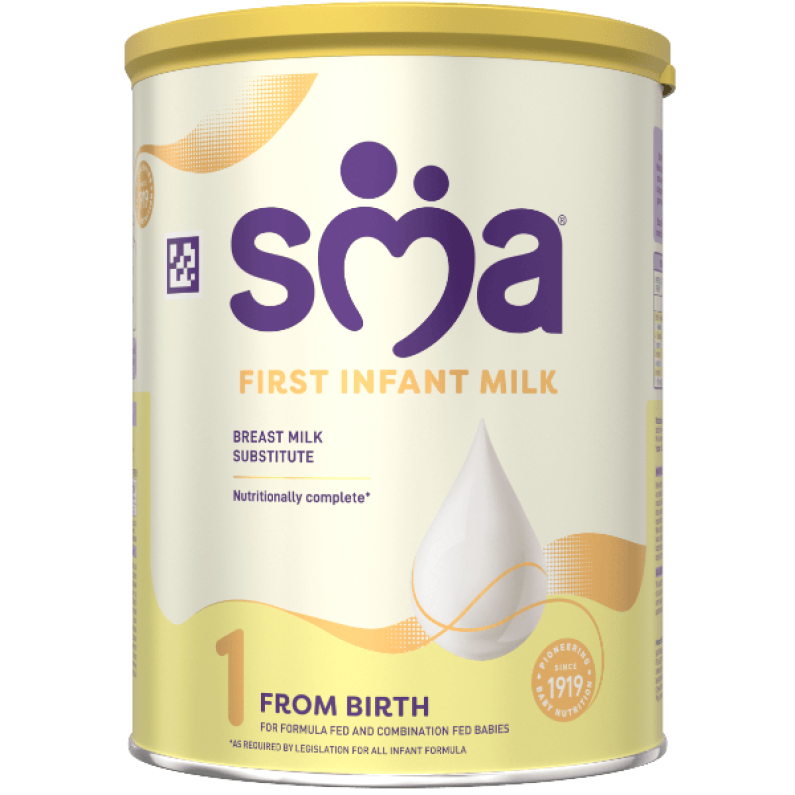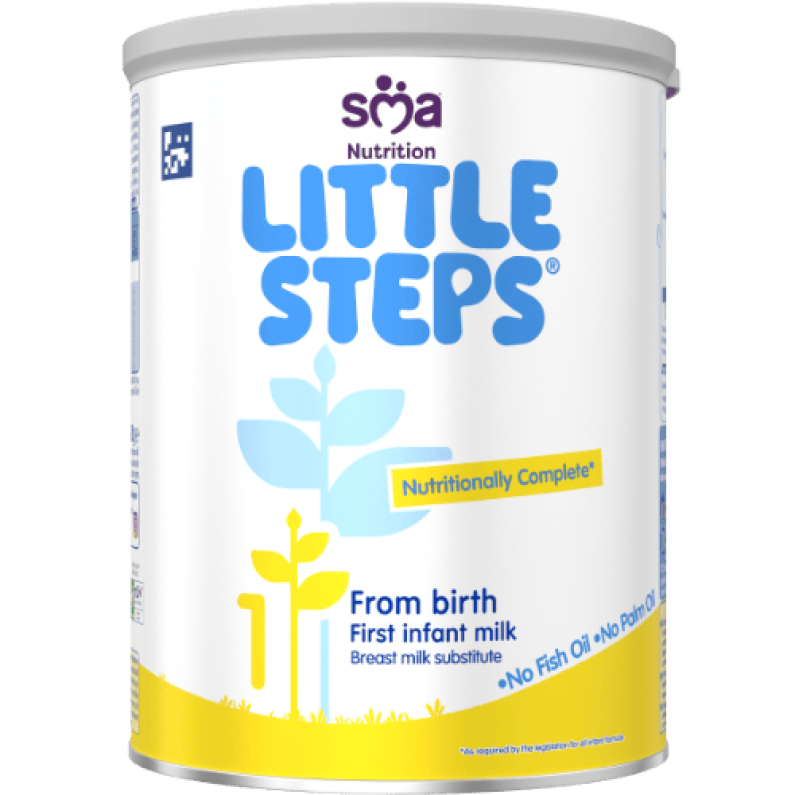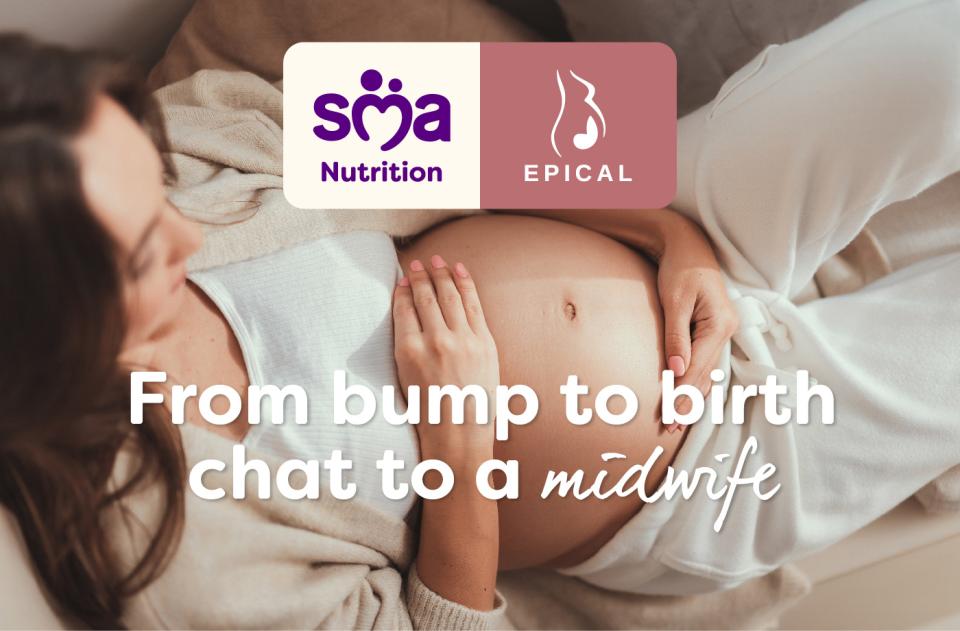* As required by the legislation for all infant formula.
Browse all SMA® Nutrition products
Important notice
Breast milk is best for babies and breastfeeding should continue for as long as possible. Infant milks should only be used on the advice of a doctor, midwife, health visitor, public health nurse, dietitian or pharmacist, or other professionals responsible for maternal and child care.



